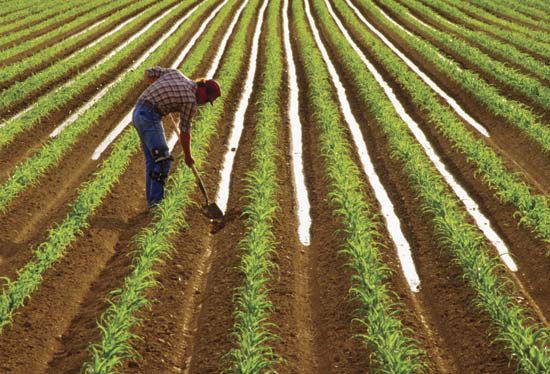Lesson 29 Taxi!
Captain Ben Fawcett has bought an unusual taxi and has begun a new service. The 'taxi' is a small Swiss aeroplane called a 'Pilatus Porter'. This wonderful plane can carry seven passengers. The most surprising thing about it, however, is that it can land anywhere: on snow, water, or even on a ploughed field. Captain Fawcett's first passenger was a doctor who flew from Birmingham to a lonely village in the Welsh mountains. Since then, Captain Fawcett has flown passengers to many unusual places. Once he landed on the roof of a block of flats and on another occasion, he landed in a deserted car park. Captain Fawcett has just refused a strange request from a businessman. The man wanted to fly to Rockall, a lonely island in the Atlantic Ocean, but Captain Fawcett did not take him because the trip was too dangerous.
ˈkæptən bɛn ˈfɔsɪt hæz bɑt ən ənˈjuʒˌuəl ˈtæksi ænd hæz bɪˈgʌn ə nu ˈsɜrvəs.
ðə ˈtæksi ɪz ə smɔl swɪs ˈerəˌplān kɔld əpiˈleɪtəs ˈpɔrtər.
ðɪs ˈwʌndərfəl pleɪn kæn ˈkæri ˈsɛvən ˈpæsənʤərz.
ðə moʊst sərˈpraɪzɪŋ θɪŋ əˈbaʊt ɪt, ˌhaʊˈɛvər, ɪz ðæt ɪtkæn lænd ˈɛniˌwɛr: ɑn snoʊ, ˈwɔtər, ɔr ˈivɪn ɑn ə plaʊd fild.
ˈkæptən ˈfɔsɪts fɜrst ˈpæsənʤər wʌz ə ˈdɑktər hu flu frʌmˈbɜrmɪŋˌhæm tu ə ˈloʊnli ˈvɪləʤ ɪn ðə wɛlʧ ˈmaʊntənz. sɪns ðɛn, ˈkæptən ˈfɔsɪt hæz floʊn ˈpæsənʤərz tu ˈmɛni ənˈjuʒˌuəlˈpleɪsəz.
wʌns hi ˈlændəd ɑn ðə ruf ʌv ə blɑk ʌv flæts ænd ɑn əˈnʌðər əˈkeɪʒən, hi ˈlændəd ɪn ə dɪˈzɜrtɪd kɑr pɑrk. ˈkæptənˈfɔsɪt hæz ʤʌst rəˈfjuzd ə streɪnʤ rɪˈkwɛst frʌm ə ˈbɪznəˌsmæn. ðə mən ˈwɑntəd tu flaɪ tu Rockall, ə ˈloʊnli ˈaɪlənd ɪn ðiətˈlæntɪk ˈoʊʃən, bʌt ˈkæptən ˈfɔsɪt dɪd nɑt teɪk hɪm bɪˈkɔz ðə trɪp wʌz tu ˈdeɪnʤərəs.
任务配置:L0+L1+L4
plough (BrE) 美式英语写法是plow
n. 犁;
the Plough (NmA) the Big Digger北斗七星;大熊星座
under the plough (BrE formal) of land
used for growing crops, not for keeping animals on 用于耕作的;作农田的
v. to dig and turn over a field or other area of land with a plough
ploughed field 犁过的田地
plow a lone/ a lonely/ your own/ furrow literary phrase
to be the only person doing something or interested in somehting
phrasal verb:
1. plough ahead: to continue to do something that may involve problems or that other people are opposing.
Their decision to plough ahead before safety checks had been made was strongly criticized.
2. plough back: to put any profits made by a business back into it in order to make it more successful.
All the money we raise is ploughed back into our work.
3. plough into: a. to crash into someone or something with force, especially because you are moving or driving too quickly or in a careless or uncontrolled way
Luckily no one was hurt when their car ploughed into a tree.
b. to invest a lot of money in something in order to improve it or make it successful
Last year the government ploughed more than 80 millions into road repair.
4. plough on: to continue doing something that takes a lot of effort or i likely to cause you problems.坚持做,继续进行艰难或乏味的事;苦撑
5. plough your way through sth.
a. to force a way through sth. 费劲地穿越或者通过
She ploughed her way through the waiting crowds.
b. of a vehicle or an aircraft to go violently through sth, out of control 猛冲的;失控地穿过
The plane ploughed through the trees.
c. to make slow progress through sth difficult or boring especially a book, a report, etc. 艰难地进行,缓慢地推进(尤指读书,做报告等);埋头苦干
练习感悟:
今天因为其他的事情,让我觉得自己花了太多了时间在学习英语上,其它事情都没有空理会,实在不应该。
所以,今天的朗读,真的心不在焉了,没有办法静下来好好朗读,要注意,明天就30天了,给自己加油!



